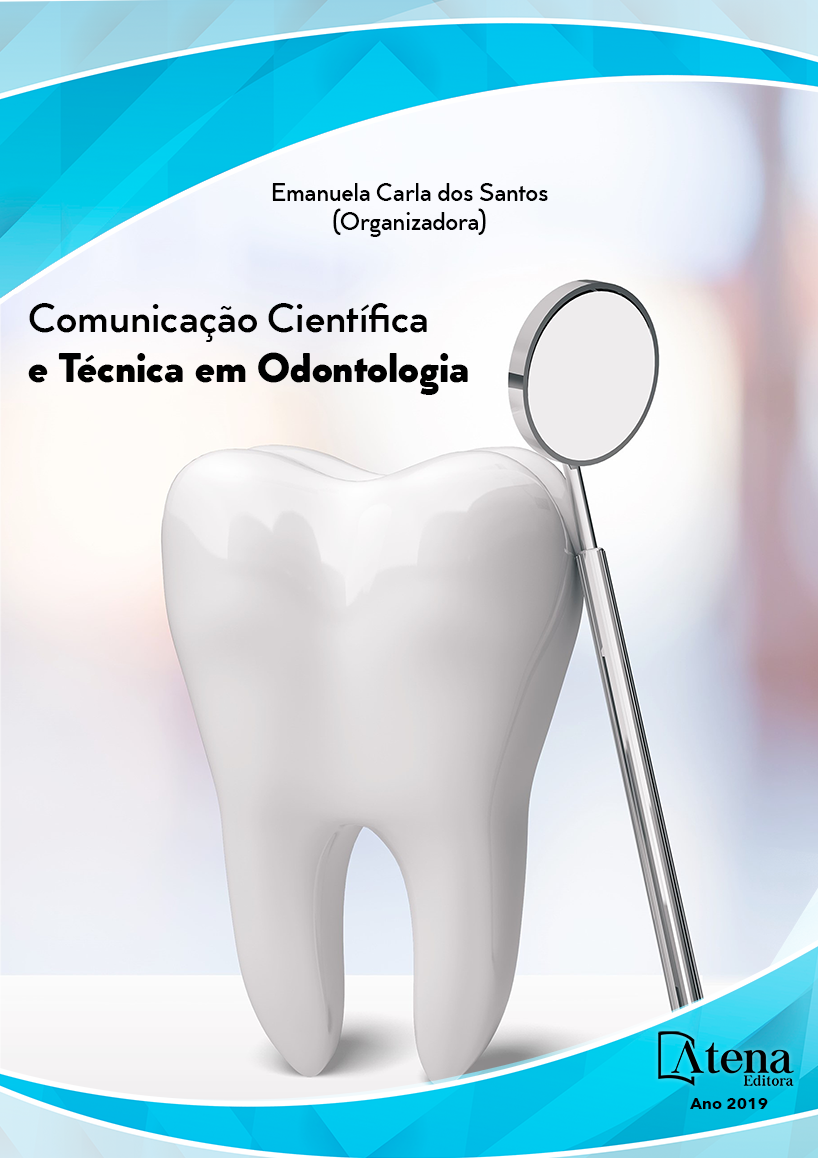
EFFECT OF ND:YAG LASER AND FLUORIDE TREATMENT ON THE PERMEABILITY OF PRIMARY TOOTH ENAMEL
O objetivo deste estudo foi avaliar
os efeitos da combinação do tratamento com
laser Nd:YAG e gel de fluoreto de fosfato
acidulado tópico ou verniz fluoretado sobre
a permeabilidade do esmalte dentario. Vinte
e quatro dentes decíduos humanos foram
seccionados no sentido buco-lingual, e as
amostras foram isoladas com verniz/cera,
deixando uma área exposta na superfície
externa (9mm2). Estas amostras foram divididas
aleatoriamente em 6 grupos (n=8) de acordo com
os tratamentos fornecidos, os quais incluíram:
G1 (sem tratamento), G2 (1,23% de flúor gel
acidificado (DFL®; 4min), G3 (flúor acidulado
gel + Nd:YAG a 0,5 W/10 Hz modo de contato),
G4 (5% de verniz fluoretado (Duraphat®), G5
(verniz fluoretado + Nd:YAG a 0,5 W/10 Hz) e
G6 (Nd:YAG a 0,5 W). Após o tratamento, foi
realizado um método de coloração histoquímica
utilizando sulfato de cobre e uma solução de
ditiooxamida em todas as amostras, sendo
retiradas três imagens da área exposta por meio
de um microscópio óptico. A permeabilidade
foi analisada nas imagens digitalizadas por
meio da porcentagem de penetração de cobre
sobre a espessura do esmalte. Os dados foram
analisados usando ANOVA e LSD de Fisher. O grupo controle teve a maior penetração
de cobre (67,48%) e foi significativamente diferente (p <0,05) do G2 (27,71%), G3
(23,24%), G4 (37,81%), G5 (39,88%) e G6 (36,80%) que apresentaram um menor
grau de penetração de cobre. O tratamento com laser Nd:YAG, com ou sem gel/verniz
fluoretado, mostrou ser semelhante à aplicação tópica de flúor em relação a redução
da permeabilidade do esmalte.
EFFECT OF ND:YAG LASER AND FLUORIDE TREATMENT ON THE PERMEABILITY OF PRIMARY TOOTH ENAMEL
-
DOI: 10.22533/at.ed.29619010428
-
Palavras-chave: Esmalte dentário; fluoretos; permeabilidade; Dente decíduo; Lasers.
-
Keywords: Dental enamel; fluorides; permeability; Tooth, deciduous; Lasers.
-
Abstract:
The purpose of this study was to evaluate the effects of the combination
of Nd:YAG laser treatment and a topical acidulated phosphate fluoride gel or a fluoride
varnish on the permeability of primary enamel. Twenty-four human primary teeth
were sectioned in the buccolingual direction, and the samples were isolated with nail
varnish/wax, leaving an exposed area on the outer surface (9 mm2). These samples
were randomly divided into 6 groups (n=8) according to the provided treatments, which
included the following: G1 (no treatment), G2 (1.23% acidulated fluoride gel (DFL ®;
4 min), G3 (acidulated fluoride gel + Nd:YAG at 0.5 W/10 Hz contact mode), G4 (5%
fluoride varnish (Duraphat ®), G5 (fluoride varnish + Nd:YAG at 0.5 W/10 Hz) and G6
(Nd:YAG at 0.5 W/10 Hz). After the treatment, a histochemical coloring method using
copper sulfate and a dithiooxamide solution was performed on all of the samples. Three
sections taken from the exposed area of each sample were imaged using an optical
microscope. The permeability was measured in the resulting digitized images as the
percentage of copper penetration across the enamel thickness. The data were analyzed
using ANOVA and Fisher’s LSD. The control group had the deepest copper penetration
(67.48%) and was significantly different (p<0.05) from G2(27.71%), G3(23.24%),
G4(37.81%), G5(39.88%) and G6(36.80%), all of which were found to have a lesser
degree of copper penetration. Nd:YAG laser treatment, either with/without fluoride gel/
varnish, was found to be similar to topical fluoride application in terms of its effects in
reducing enamel permeability.
-
Número de páginas: 15
- Juliana Jendiroba Faraoni
- Danielle Torres Azevedo
- Juliana dos Reis Derceli
- Walter Raucci Neto
- Regina Guenka Palma-Dibb
- Shelyn Akari Yamakami


